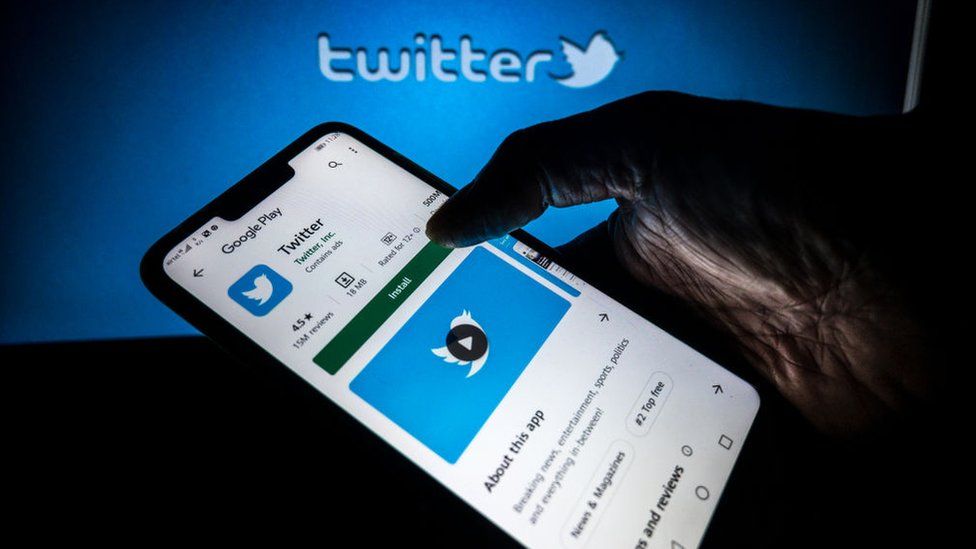Is Koo, an Indian microblogging app, capable of defeating Twitter?
According to Mayank Bidawatka, co-founder of Koo, the company intends to surpass Twitter's 25 million-strong user base in India this year.
By the end of 2021, it has surpassed 20 million downloads in India.
"We currently offer services in ten languages, including English. We'd like to cover all 22 of India's official languages this year "At the company's headquarters in the southern city of Bangalore, a tech hotspot, he told the BBC.
Following a spat between the Indian government and the US microblogging network, Koo was thrown into the spotlight last year as an alternative to Twitter.
The government of Prime Minister Narendra Modi ordered Twitter to remove supposedly incendiary accounts, which it did at first but then restored, citing "insufficient grounds." The standoff raged on, with the Indian government threatening legal action against the company's employees.
This was on top of a lingering disagreement over new digital laws, which raised concerns about free speech and privacy. WhatsApp filed a lawsuit against the government, claiming that the guidelines will force it to violate privacy laws.
A rush of cabinet members and lawmakers from Prime Minister Narendra Modi's Bharatiya Janata Party (BJP) relocated to Koo overnight, angered by Twitter's intransigence and claimed refusal to comply with digital norms. Mr. Modi, who has a sizable Twitter following, has kept put.
In early 2020, Koo, which caters mostly to non-English consumers in India, launched. When Twitter was suspended in Nigeria in 2021, it expanded to the country. By the end of 2022, it hopes to have 100 million users.
Mr. Bidawatka co-founded Koo with Aparmeya Radhakrishna, an angel investor, and entrepreneur whose ride-sharing startup TaxiForSure was acquired by the Indian firm Ola in 2015 for $200 million (£147 million). Vokal, a knowledge-sharing portal in Indian languages, is also run by the two.
Koo has attracted cricketers and Bollywood stars in the last year, and the company expects the number of "eminent accounts," which currently stands at 5,000, to triple by the end of the year.
However, it has been accused of magnifying official propaganda and allowing anti-Muslim hate speech to flourish.
In a fiercely split India, social media has become yet another battleground, and followers of the Hindu nationalist BJP have long been accused of mercilessly mocking people viewed as critical or opposing to Mr. Modi.
Hate speech and racist or offensive content are expressly prohibited by Koo's guidelines. Moderation is difficult, as it is on other social media platforms, like Twitter, because "koos" (its version of tweets) are generated every second.
Mr Bidawatka believes the problem may be remedied by relying on technology rather than human moderators, as well as integrating the user community in flagging poisonous messages.
He acknowledges that there are "a lot of BJP guys" on Koo, but denies that it is an echo chamber of anti-liberal voices. He goes on to say that the app is home to opposition leaders from 19 different parties, including state chief ministers from the main opposition Congress party.
"Some early adopters will always exist. However, how you begin and what happens first should not determine your entire trip "Mr. Bidawatka expressed his thoughts. "There is no need for us to produce something that just a small portion of the people will use as entrepreneurs."
However, according to Nikhil Pahwa, a digital rights activist, there is a clear rationale for Mr. Modi's government to promote Koo as a homegrown, even "nationalist" alternative to Twitter in order to establish a "soft landing spot" for itself in the event that the need to ban Twitter arises in the future.
Mr. Pahwa claims that similar to China's "splinternet," where the government controls cyberspace, India has been fighting for greater digital sovereignty and control of its internet for years.
He adds that these broader trends "would provide additional tailwinds to Indian-owned platforms (like Koo)."
He also believes that "global big tech" will find it "increasingly difficult to grow in India" due to data and security restrictions.
Koo feels that if it can solve the problem of how to best control material while maintaining a safe space for users, something Twitter has long struggled with, it has a good chance of succeeding.
It will, however, need to make a more concerted attempt to attract users with a wide range of political perspectives. Liberal or anti-establishment voices may be hesitant to leave Twitter or to have accounts on both platforms for the time being.
Mr Pahwa believes that the app's necessity for identification using a mobile phone number will be a difficulty since, while it will allow Koo to better control content, it will "take away the comfort of anonymity" that Twitter provides its users.
Nonetheless, Koo's unique focus on creating a product for non-native English users makes it a fascinating product.
The startup has experimented a lot in recent months, such as allowing users to 'Koo' in various languages at the same time on one screen.
Mr. Bidawatka claims that Bollywood actors, who often engage with their followers on social media in English, use this function to reach out to a wider audience in multiple languages.
In India, Koo competes with ShareChat, a significantly larger competitor in terms of the user base. It will double its headcount to 500 workers as it expands across Indian languages.
Mr. Bidawatka hopes to take the platform to nations outside of India where English is not the major language, buoyed by the site's success in Nigeria.
"Because of its vast population and under-penetration of existing platforms, Southeast Asia is interesting. That is, without a doubt, on the cards "Mr. Bidawatka explains.
"English is spoken by only 20% of the world's population; the remaining 80% does not speak English," he continues. "We have access to the entire market."







